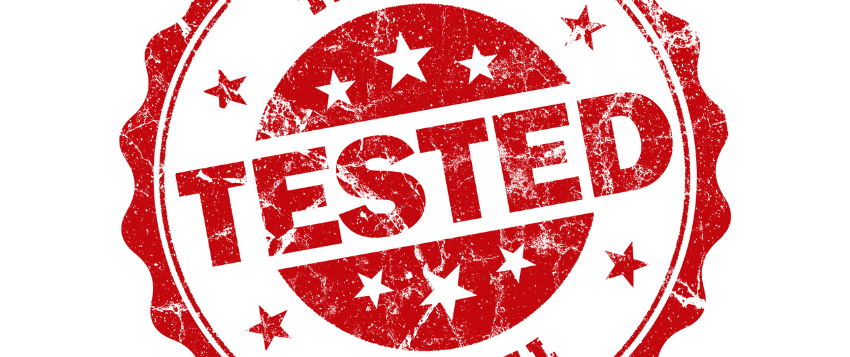History is littered with leaders who rose fast, amassed power, and fell harder, all because they failed the one test no strategy can save you from: ethics.
The business world is obsessed with metrics, milestones, and market share, ethical leadership is often treated like a soft skill; nice to have, but expendable when the stakes are high. Yet, when all is said and done, ethics isn’t just a footnote to success. It’s the foundation. Strip it away, and the whole house collapses.
So, here’s the question every leader needs to ask: Will your principles survive your power?
Power Reveals Who You Are

Power doesn’t corrupt as much as it exposes. It amplifies what’s already there — your values, your blind spots, your character.
A landmark study from UC Berkeley psychologist Dacher Keltner found that people in positions of power are more likely to act unethically, from cutting in lines to taking credit for others’ work. The more power they hold, the more detached they become from the consequences of their actions.
We’ve seen this play out time and again. Steinhoff’s collapse in South Africa wiped out billions in shareholder value, leaving employees and pensioners devastated all because ethical guardrails were treated as optional. Volkswagen’s emissions scandal cost the company over $33 billion and destroyed years of brand trust. These weren’t failures of intelligence or capability. They were failures of principle.
The Grey Zone: Where Leadership Gets Tested

Most ethical crises don’t announce themselves with flashing red lights. They creep in quietly through the grey zones, those moments where profit clashes with people, speed trumps sustainability, and doing the right thing feels painfully inconvenient.
Imagine this: You’re under shareholder pressure to cut costs. Do you lay off hundreds to boost margins?
Your team discovers a defect in a flagship product days before launch. Do you delay (and take a PR hit) or release anyway hoping it’s “not that bad”?
A key client offers you a lucrative contract, but only if you “adjust” certain reports. Do you walk away?
These are the kinds of decisions that separate leaders from figureheads. A Harvard Business School–Edelman survey found 70% of people expect CEOs to address social issues from climate change to inequality. Sitting on the fence isn’t an option anymore.
Ethics as a Competitive Advantage

There’s a myth that ethics is a luxury reserved for stable times. Ethical leadership is a long-term growth strategy.
Research by the Ethics & Compliance Initiative found that companies with strong ethical cultures outperform peers by 40% in employee retention and have 20% lower turnover costs. Harvard Business Review also highlights that such companies see up to 14% higher market valuation and 16% better return on assets over time.
Trust isn’t just a moral currency — it’s economic. Patagonia, for example, built its entire brand on environmental ethics. In 2022, founder Yvon Chouinard gave away the $3 billion company to a trust dedicated to fighting climate change. The result? Surging customer loyalty and record sales.
Compare that to Boeing’s ethical lapses after the 737 Max tragedies. The company’s rushed production timelines and failure to disclose critical safety flaws cost lives, grounded its fleet, and sent its stock plummeting by 25% in 18 months. The lesson? Ethics is cheaper than damage control.
Building Your Ethical Compass

So how does a leader ensure their principles don’t get lost in the boardroom? It starts with intentional practice:
1. Audit Yourself
Ask hard questions: What values guide my decisions? Where might I be compromising? Would I be proud to see this choice on the front page tomorrow?
2. Encourage a Speak-Up Culture
A culture of silence is fertile ground for ethical failure. Psychological safety, where employees feel safe to question decisions must be non-negotiable.
3. Use Ethical Frameworks
Leaders can apply tools like stakeholder analysis or “the newspaper test” (Would I want this decision on tomorrow’s headlines?) to stress-test choices.
4. Surround Yourself with Accountability
Mentors, diverse boards, and even AI-powered compliance systems can help leaders avoid echo chambers.
5. Walk the Talk
Ethics isn’t what you post on LinkedIn. It’s what you do when no one’s watching. Your actions set the tone for the entire organisation.
The Cost of Compromise

Choosing the ethical path isn’t easy. It may mean slower growth, angry investors, or walking away from lucrative deals. But the alternative, a reputation in ruins costs far more.
Short‑term wins aren’t worth long‑term loss. According to Deloitte’s Global Boardroom Program, a full 94% of directors and C‑suite leaders say stakeholder trust is “important” to their organization’s performance, and 67% proactively integrate trust into ongoing operations—but only 39% feel they’ve achieved a high level of trust maturity. The message is clear: while nearly all leaders recognise the importance of trust, many lack the formal systems needed to sustain it. Trust, once broken, is extremely hard to rebuild.
As American entrepreneur, author Jim Rohn once said, “The challenge of leadership is to be strong, but not rude; kind, but not weak; bold, but not a bully; thoughtful, but not lazy; humble, but not timid; proud, but not arrogant; have humour, but without folly.”
This balance is impossible without a moral compass.
The Takeaway

Power is intoxicating. It tempts leaders to cut corners, silence dissent, and prioritise results at any cost. But true leadership isn’t defined by how much power you hold, it’s revealed by how tightly you cling to your principles when they’re under siege. So, ask yourself: Would I follow me?
Because in the end, your legacy isn’t the title on your business card or the size of your portfolio. It’s the story people tell about how you led and whether you stood for something when it mattered most.







